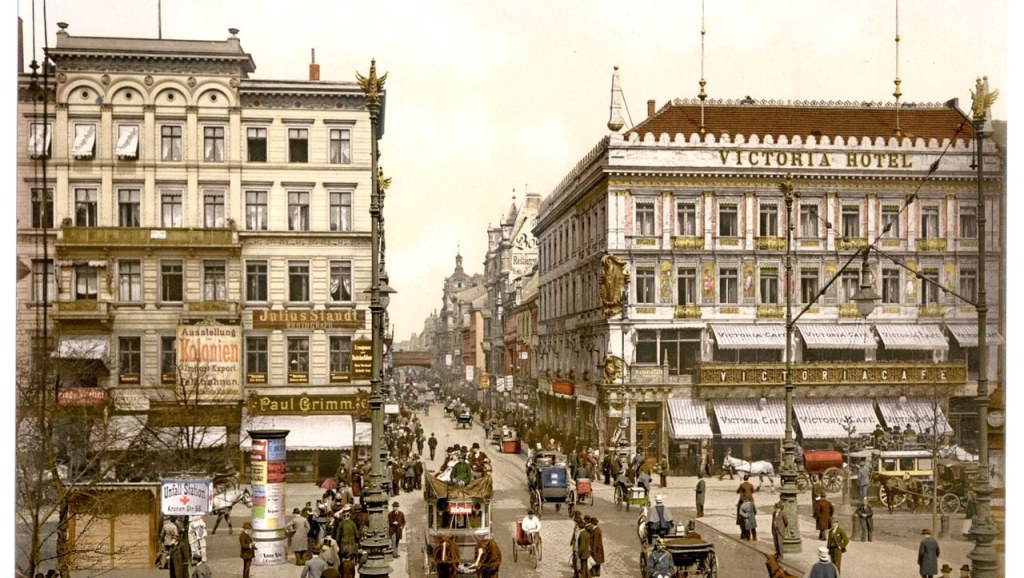Unveiling Timeless Travel Experiences: Journey From The 19th Century To The Present Day – Unlock The Adventure Today!
Travel Experiences from the 19th Century to the Present Day
Hello Readers,
Welcome to our article on the fascinating travel experiences from the 19th century to the present day. In this journey through time, we will explore the evolution of travel and how it has shaped our world today. From the advent of railways to the rise of aviation, travel has become an integral part of our lives, opening new horizons and connecting people across continents. Join us as we delve into the past and present of travel and discover the transformative power of exploration.
1 Picture Gallery: Unveiling Timeless Travel Experiences: Journey From The 19th Century To The Present Day – Unlock The Adventure Today!

Introduction
1. The Revolutionizing World of Travel
The 19th century marked a turning point in the history of travel. With the Industrial Revolution in full swing, technological advancements brought about significant changes in transportation. Steam-powered engines and the construction of railways paved the way for faster and more convenient journeys. This revolution in transportation not only enabled people to explore distant lands but also sparked a sense of curiosity and adventure.

Image Source: spiegel.de
2. The Adventurous Explorers
As travel became more accessible, intrepid explorers set out to discover the unknown. From the expeditions of David Livingstone in Africa to the pioneering journeys of Roald Amundsen in the Arctic, these brave individuals pushed the boundaries of human exploration. Their stories captivated the imagination of people around the world, inspiring others to embark on their own adventures.
3. The Golden Age of Travel
The turn of the 20th century brought about a new era of luxury and comfort in travel. The development of ocean liners, such as the RMS Titanic, offered opulent and extravagant experiences for the elite. Traveling by sea became a symbol of status and sophistication, with grand ballrooms and exquisite dining rooms becoming the norm. This golden age of travel was a testament to the growing enthusiasm for exploration and the desire for unforgettable experiences.
4. The Age of Aviation
In the early 20th century, aviation took off as a new mode of transportation. The Wright Brothers’ first flight in 1903 marked the beginning of a revolution in air travel. From the daring pioneers who flew across the Atlantic, like Amelia Earhart, to the development of commercial airlines, such as Pan Am, aviation revolutionized the way we explore the world. The ability to soar through the skies brought distant destinations within reach and made travel faster and more efficient than ever before.
5. The Rise of Mass Tourism
In the latter half of the 20th century, travel became increasingly accessible to the masses. The rise of package holidays and the development of mass tourism opened up new possibilities for individuals to explore the world. People flocked to popular destinations, such as the beaches of the Mediterranean or the cultural wonders of Europe, seeking relaxation and cultural enrichment. This era of mass tourism allowed travelers to experience different cultures and broaden their horizons.
6. The Digital Age of Travel
In the 21st century, the advent of the internet and digital technology revolutionized the way we plan and experience travel. Online booking platforms, travel apps, and social media have made it easier than ever to research destinations, book accommodations, and connect with fellow travelers. The digital age has also made it possible to share travel experiences instantly through photos and videos, inspiring others to explore and discover the world.
What is Travel Experiences from the 19th Century to the Present Day?
Travel experiences from the 19th century to the present day refer to the various journeys, adventures, and explorations that people have embarked upon over the years. From the early days of steam-powered railways to the modern era of digital travel, these experiences have shaped our understanding of the world and allowed us to discover new cultures, landscapes, and ideas.
Who were the Key Figures in Travel Experiences from the 19th Century to the Present Day?
Throughout history, there have been numerous key figures who have played significant roles in shaping travel experiences. From explorers and adventurers to inventors and innovators, these individuals have pushed the boundaries of what was thought possible and inspired generations of travelers.
When did Travel Experiences from the 19th Century to the Present Day Begin?
The travel experiences from the 19th century to the present day began with the advent of steam-powered railways in the early 19th century. This marked a significant shift in transportation and opened up new possibilities for travel. Since then, travel has continued to evolve and adapt to the changing times, with each era leaving its mark on the way we explore the world.
Where have Travel Experiences from the 19th Century to the Present Day Taken Place?
Travel experiences from the 19th century to the present day have taken place all over the world. From the icy landscapes of Antarctica to the vibrant cities of Asia, there is no limit to the destinations that travelers have explored. Each region offers its own unique experiences and attractions, drawing in visitors from far and wide.
Why are Travel Experiences from the 19th Century to the Present Day Important?
Travel experiences from the 19th century to the present day are important because they allow us to broaden our horizons, learn about different cultures, and gain a deeper understanding of the world. Through travel, we can break down barriers, challenge stereotypes, and foster mutual respect and appreciation. Additionally, travel experiences contribute to the local economy, promote cultural exchange, and create lifelong memories.
How have Travel Experiences from the 19th Century to the Present Day Evolved?
Travel experiences from the 19th century to the present day have evolved in numerous ways. From the mode of transportation to the types of accommodations, travel has become more comfortable, convenient, and accessible to a wider audience. The rise of technology has also transformed the way we plan and experience travel, making it easier than ever to explore the world.
Advantages and Disadvantages of Travel Experiences from the 19th Century to the Present Day
1. Advantages of Travel Experiences:
Travel experiences from the 19th century to the present day offer numerous advantages, including:
• Cultural enrichment: Travel allows us to immerse ourselves in different cultures, experiencing new traditions, cuisines, and ways of life.
• Personal growth: Travel provides opportunities for self-discovery, pushing us out of our comfort zones and fostering personal development.
• Broadened horizons: By exploring different destinations, we gain a broader perspective on the world and develop a greater appreciation for diversity.
• Memorable experiences: Traveling creates lifelong memories and allows us to collect stories that we can share with others.
• Escape from daily routine: Travel offers a break from the monotony of everyday life, allowing us to relax, rejuvenate, and recharge.
2. Disadvantages of Travel Experiences:
While travel experiences have many advantages, there are also a few disadvantages to consider:
• Cost: Travel can be expensive, especially when considering transportation, accommodation, and other expenses.
• Environmental impact: Travel contributes to carbon emissions and environmental degradation, particularly with long-haul flights and excessive resource consumption.
• Safety concerns: Traveling to unfamiliar destinations can pose safety risks, requiring careful planning and awareness of local conditions.
• Disruption to routine: Travel can disrupt daily routines, making it challenging to maintain regular habits and commitments.
• Cultural appropriation: In some cases, travelers may unintentionally engage in cultural appropriation or disrespect local customs and traditions.
Frequently Asked Questions (FAQs)
1. Is it safe to travel to unfamiliar destinations?
While travel to unfamiliar destinations can come with certain risks, taking necessary precautions and doing thorough research can help ensure a safe and enjoyable experience. It is important to be aware of local laws, customs, and potential dangers, and to take appropriate measures to mitigate any risks.
2. How can I make my travel experiences more sustainable?
There are several ways to make travel experiences more sustainable. These include reducing carbon emissions by choosing eco-friendly transportation options, supporting local businesses and communities, minimizing waste and resource consumption, and respecting local cultures and environments.
3. What are some unique travel experiences from the 19th century?
Some unique travel experiences from the 19th century include the Transcontinental Railroad in the United States, the construction of the Suez Canal in Egypt, and the opening of the Orient Express railway line connecting Europe and Asia.
4. How has technology transformed travel experiences?
Technology has transformed travel experiences in numerous ways, from online booking platforms and travel apps that make planning and navigating easier, to social media platforms that allow travelers to share their experiences and connect with others around the world.
5. Are travel experiences from the 19th century still relevant today?
Yes, travel experiences from the 19th century continue to shape our understanding of the world and provide valuable lessons for modern travelers. The spirit of exploration and the desire to discover new places and cultures remain as relevant today as they were in the past.
Conclusion
In conclusion, travel experiences from the 19th century to the present day have played a significant role in shaping our world and enriching our lives. From the early days of steam-powered railways to the digital age of travel, each era has brought its own innovations and challenges. Travel allows us to explore, learn, and connect with people and places in a way that no other experience can. As we continue to explore and discover the world, let us do so with respect, curiosity, and a spirit of adventure.
Safe travels,
Your friends at [Your Website Name]
Final Remarks
Travel is a transformative experience that opens our minds and broadens our horizons. While this article provides a glimpse into the travel experiences from the 19th century to the present day, it is by no means an exhaustive account. Each person’s journey is unique and personal, shaped by their own desires, interests, and circumstances. As you embark on your own travel experiences, remember to embrace the unknown, seek new perspectives, and cherish the memories made along the way. Whether you’re traveling to the far corners of the globe or exploring your own backyard, may your adventures be filled with joy, discovery, and meaningful connections.
This post topic: Travel Experiences


